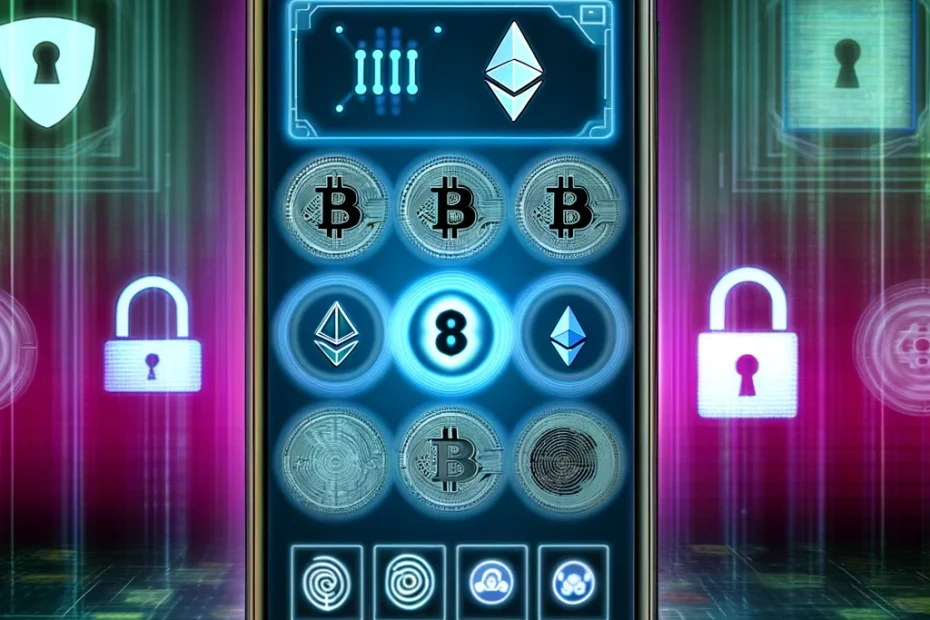In the ever-evolving world of digital finance, the importance of securing your digital assets has never been more paramount. As we navigate through 2024, the landscape of cryptocurrencies and digital assets continues to expand, bringing with it a myriad of opportunities and, equally, potential threats to security. Crypto wallets stand at the forefront of this digital financial revolution, serving as the essential tools for anyone looking to safeguard their digital assets effectively. This comprehensive guide delves deep into the essence of crypto wallets, offering insights, expertise, and trustworthy advice on securing your digital treasures.
Understanding Crypto Wallets
Crypto wallets are more than just digital accounts; they are sophisticated tools designed to interact with blockchain networks, enabling users to store, send, and receive digital currencies. Unlike traditional wallets, which hold physical currency, crypto wallets don’t store cryptocurrencies directly. Instead, they keep your private keys—the critical piece of information used to authorize transactions on the blockchain.
Types of Crypto Wallets
Exploring the various types of crypto wallets is crucial for selecting one that aligns with your needs. Wallets range from hot wallets, which are connected to the internet and offer convenience for daily transactions, to cold wallets, which are offline and provide enhanced security for long-term asset storage. Each type has its unique features, benefits, and potential drawbacks.
Hot Wallets: Convenience vs. Risk
Hot wallets, including desktop, mobile, and web wallets, offer unparalleled convenience. They allow for quick access to funds, making them ideal for frequent traders and those engaging in daily crypto transactions. However, this convenience comes at the cost of increased vulnerability to online attacks and scams.
Cold Wallets: The Fort Knox of Crypto Security
Cold wallets, such as hardware wallets and paper wallets, are the gold standard for securing your digital assets. By keeping your private keys offline, they virtually eliminate the risk of cyber theft. Hardware wallets, small devices that connect to your computer only when needed, provide a perfect balance between security and accessibility.
Securing Your Digital Assets in 2024
The landscape of digital security is constantly changing, with hackers and scammers developing new strategies to access your valuable assets. Understanding the latest security measures and how to implement them is crucial for anyone looking to protect their investments.
Multi-Factor Authentication (MFA)
Multi-factor authentication adds an extra layer of security to your crypto wallets. By requiring two or more verification methods, MFA significantly reduces the risk of unauthorized access.
Regular Software Updates
Keeping your wallet software updated is critical for security. Developers regularly release updates to patch vulnerabilities and enhance wallet security. Neglecting these updates can leave your wallet exposed to attacks.
Secure Backup Strategies
A secure backup of your wallet, especially your private keys and recovery phrases, is essential. This ensures that you can regain access to your assets even if your primary device is lost, damaged, or compromised.
Educating Yourself Against Phishing Attacks
Phishing attacks are becoming increasingly sophisticated. Educating yourself on the common tactics used by scammers can help protect your assets from these threats. Always verify the authenticity of any communication purporting to be from wallet providers or crypto services.
Choosing the Right Crypto Wallet for You
Selecting the right crypto wallet depends on your individual needs and how you plan to use your digital assets. Consider factors like security, convenience, and the types of cryptocurrencies you wish to hold. Researching and comparing different wallets can help you make an informed decision.
Future of Crypto Wallet Security
As technology advances, so too do the methods for securing digital assets. Innovations such as biometric security measures, decentralized identity verification, and quantum-resistant encryption are on the horizon, promising to offer even greater security for crypto wallet users.
Conclusion
Securing your digital assets in 2024 requires a proactive approach and a deep understanding of the tools at your disposal. Crypto wallets are your first line of defense against the myriad of threats in the digital world. By choosing the right type of wallet, implementing robust security practices, and staying informed about the latest threats and advancements, you can protect your digital wealth and navigate the crypto space with confidence.
Frequently Asked Questions
- What is a private key, and why is it important?
- How can I recover my assets if I lose access to my crypto wallet?
- Are hot wallets safe for storing large amounts of cryptocurrencies?
- What are the signs of a phishing attack targeting my crypto wallet?
- Can hardware wallets be hacked?
- What steps should I take if I suspect my crypto wallet has been compromised?
